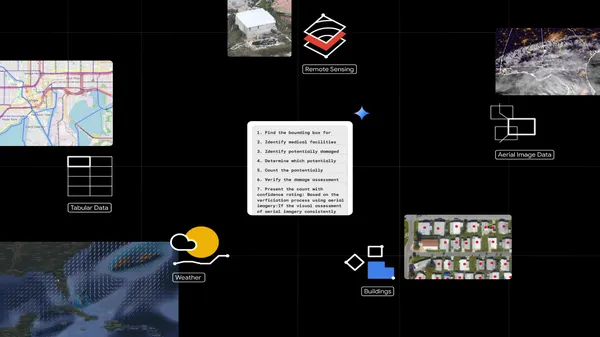Essential Linux Commands List: Usage, Examples & Explanations
Command Use Case Explanation ls List directory contents Displays files and directories in the current directory. Use ls -l for detailed info. cd Change directory Navigates between directories. Example: cd /home/user moves to /home/user. pwd Print working directory Shows the current directory path. Useful to confirm location. mkdir Create a directory Example: mkdir new_folder creates a new folder named new_folder. rmdir Remove empty directory Deletes an empty directory. Use rm -r for non-empty ones. rm Remove files or directories Deletes files (rm file.txt) or directories (rm -r folder). cp Copy files and directories Example: cp file.txt /backup/ copies file.txt to /backup/. mv Move or rename files Example: mv old.txt new.txt renames old.txt to new.txt. cat View file contents Displays file content. Example: cat file.txt. less View large files Scroll through large files page by page. Example: less log.txt. head View first lines of a file Example: head -n 10 file.txt shows the first 10 lines. tail View last lines of a file Example: tail -n 10 file.txt shows the last 10 lines. grep Search in files Example: grep 'error' log.txt searches for 'error' in log.txt. find Search for files Example: find /home -name '*.txt' finds all .txt files. locate Find files quickly Uses a prebuilt index. Example: locate file.txt. du Disk usage Example: du -sh folder/ shows folder size. df Disk space usage Example: df -h shows available disk space in human-readable format. chmod Change file permissions Example: chmod 755 script.sh sets executable permissions. chown Change file owner Example: chown user:group file.txt assigns a new owner. ps List running processes Example: ps aux shows all running processes. top Display system usage Shows CPU/memory usage and running processes. htop Interactive process viewer A better version of top (requires installation). kill Terminate a process Example: kill 1234 stops the process with PID 1234. pkill Kill process by name Example: pkill firefox terminates all firefox processes. tar Archive files Example: tar -czvf archive.tar.gz folder/ creates a compressed archive. unzip Extract ZIP files Example: unzip archive.zip. gzip Compress files Example: gzip file.txt compresses file.txt to file.txt.gz. gunzip Decompress GZIP files Example: gunzip file.txt.gz restores file.txt. ssh Secure shell connection Example: ssh user@server.com connects to a remote server. scp Secure copy over SSH Example: scp file.txt user@server:/backup/. rsync Sync files and directories Example: rsync -av source/ destination/. wget Download files Example: wget https://example.com/file.zip. curl Transfer data from URLs Example: curl -O https://example.com/file.zip. nano Edit text files Example: nano file.txt opens file.txt for editing. vim Advanced text editor Example: vim file.txt. Press i to edit, Esc to exit insert mode, :wq to save and quit. history Show command history Lists previously executed commands. clear Clear terminal screen Clears the command line screen. echo Print text to terminal Example: echo "Hello, World!". export Set environment variables Example: export PATH=$PATH:/new/path. alias Create command shortcuts Example: alias ll='ls -la' defines ll as ls -la. uptime Show system uptime Displays how long the system has been running. uname Show system information Example: uname -a displays kernel version and system details. whoami Show current user Displays the currently logged-in username. id Show user ID and group Example: id username. groups Show group memberships Lists the groups a user belongs to. passwd Change user password Example: passwd username. shutdown Power off system Example: shutdown -h now shuts down immediately. reboot Restart system Example: reboot. cron Schedule tasks Example: crontab -e opens the crontab file for scheduling tasks. systemctl Manage services Example: systemctl restart apache2 restarts Apache. journalctl View logs Example: journalctl -u apache2 shows logs for Apache. dmesg View boot logs Example: `dmesg {% raw %}ip Show network details Example: ip a displays network interfaces. ping Test network connectivity Example: ping google.com. traceroute Trace network path Example: traceroute google.com. netstat Show network connections Example: netstat -tulnp. ss Display active connections Example: ss -tulnp (alternative to netstat). nslookup Query DNS records Example: nslookup google.com. dig Get DNS info Example: dig google.com. iptables Manage firewall rules Example: iptables -L lists rules. ufw Simplified firewall Example: ufw allow 22/tcp allows SSH traffic. mount Mount file systems Example: mount /dev/sdb1 /mnt/usb. umount Unmount file systems Example: umount /mnt/usb. df Show disk usage Example: df -h. fsck Check and repair file system Example: fsck /dev/sda1. mkfs Format a filesystem Example: mkfs.ext4 /dev/sdb1. tune2fs Adjust ext4 filesystem setti

| Command | Use Case | Explanation |
|---|---|---|
ls |
List directory contents | Displays files and directories in the current directory. Use ls -l for detailed info. |
cd |
Change directory | Navigates between directories. Example: cd /home/user moves to /home/user. |
pwd |
Print working directory | Shows the current directory path. Useful to confirm location. |
mkdir |
Create a directory | Example: mkdir new_folder creates a new folder named new_folder. |
rmdir |
Remove empty directory | Deletes an empty directory. Use rm -r for non-empty ones. |
rm |
Remove files or directories | Deletes files (rm file.txt) or directories (rm -r folder). |
cp |
Copy files and directories | Example: cp file.txt /backup/ copies file.txt to /backup/. |
mv |
Move or rename files | Example: mv old.txt new.txt renames old.txt to new.txt. |
cat |
View file contents | Displays file content. Example: cat file.txt. |
less |
View large files | Scroll through large files page by page. Example: less log.txt. |
head |
View first lines of a file | Example: head -n 10 file.txt shows the first 10 lines. |
tail |
View last lines of a file | Example: tail -n 10 file.txt shows the last 10 lines. |
grep |
Search in files | Example: grep 'error' log.txt searches for 'error' in log.txt. |
find |
Search for files | Example: find /home -name '*.txt' finds all .txt files. |
locate |
Find files quickly | Uses a prebuilt index. Example: locate file.txt. |
du |
Disk usage | Example: du -sh folder/ shows folder size. |
df |
Disk space usage | Example: df -h shows available disk space in human-readable format. |
chmod |
Change file permissions | Example: chmod 755 script.sh sets executable permissions. |
chown |
Change file owner | Example: chown user:group file.txt assigns a new owner. |
ps |
List running processes | Example: ps aux shows all running processes. |
top |
Display system usage | Shows CPU/memory usage and running processes. |
htop |
Interactive process viewer | A better version of top (requires installation). |
kill |
Terminate a process | Example: kill 1234 stops the process with PID 1234. |
pkill |
Kill process by name | Example: pkill firefox terminates all firefox processes. |
tar |
Archive files | Example: tar -czvf archive.tar.gz folder/ creates a compressed archive. |
unzip |
Extract ZIP files | Example: unzip archive.zip. |
gzip |
Compress files | Example: gzip file.txt compresses file.txt to file.txt.gz. |
gunzip |
Decompress GZIP files | Example: gunzip file.txt.gz restores file.txt. |
ssh |
Secure shell connection | Example: ssh user@server.com connects to a remote server. |
scp |
Secure copy over SSH | Example: scp file.txt user@server:/backup/. |
rsync |
Sync files and directories | Example: rsync -av source/ destination/. |
wget |
Download files | Example: wget https://example.com/file.zip. |
curl |
Transfer data from URLs | Example: curl -O https://example.com/file.zip. |
nano |
Edit text files | Example: nano file.txt opens file.txt for editing. |
vim |
Advanced text editor | Example: vim file.txt. Press i to edit, Esc to exit insert mode, :wq to save and quit. |
history |
Show command history | Lists previously executed commands. |
clear |
Clear terminal screen | Clears the command line screen. |
echo |
Print text to terminal | Example: echo "Hello, World!". |
export |
Set environment variables | Example: export PATH=$PATH:/new/path. |
alias |
Create command shortcuts | Example: alias ll='ls -la' defines ll as ls -la. |
uptime |
Show system uptime | Displays how long the system has been running. |
uname |
Show system information | Example: uname -a displays kernel version and system details. |
whoami |
Show current user | Displays the currently logged-in username. |
id |
Show user ID and group | Example: id username. |
groups |
Show group memberships | Lists the groups a user belongs to. |
passwd |
Change user password | Example: passwd username. |
shutdown |
Power off system | Example: shutdown -h now shuts down immediately. |
reboot |
Restart system | Example: reboot. |
cron |
Schedule tasks | Example: crontab -e opens the crontab file for scheduling tasks. |
systemctl |
Manage services | Example: systemctl restart apache2 restarts Apache. |
journalctl |
View logs | Example: journalctl -u apache2 shows logs for Apache. |
dmesg |
View boot logs | Example: `dmesg |
{% raw %}ip
|
Show network details | Example: ip a displays network interfaces. |
ping |
Test network connectivity | Example: ping google.com. |
traceroute |
Trace network path | Example: traceroute google.com. |
netstat |
Show network connections | Example: netstat -tulnp. |
ss |
Display active connections | Example: ss -tulnp (alternative to netstat). |
nslookup |
Query DNS records | Example: nslookup google.com. |
dig |
Get DNS info | Example: dig google.com. |
iptables |
Manage firewall rules | Example: iptables -L lists rules. |
ufw |
Simplified firewall | Example: ufw allow 22/tcp allows SSH traffic. |
mount |
Mount file systems | Example: mount /dev/sdb1 /mnt/usb. |
umount |
Unmount file systems | Example: umount /mnt/usb. |
df |
Show disk usage | Example: df -h. |
fsck |
Check and repair file system | Example: fsck /dev/sda1. |
mkfs |
Format a filesystem | Example: mkfs.ext4 /dev/sdb1. |
tune2fs |
Adjust ext4 filesystem settings | Example: tune2fs -c 30 /dev/sda1. |
iostat |
Show CPU and disk I/O usage | Example: iostat. |
vmstat |
Show system performance | Example: vmstat 5. |
mpstat |
Show CPU usage | Example: mpstat -P ALL. |
sar |
Monitor system performance | Example: sar -u 5 10. |
This list covers essential Linux commands for daily use.








































































































































































![[The AI Show Episode 143]: ChatGPT Revenue Surge, New AGI Timelines, Amazon’s AI Agent, Claude for Education, Model Context Protocol & LLMs Pass the Turing Test](https://www.marketingaiinstitute.com/hubfs/ep%20143%20cover.png)


































































































































![From drop-out to software architect with Jason Lengstorf [Podcast #167]](https://cdn.hashnode.com/res/hashnode/image/upload/v1743796461357/f3d19cd7-e6f5-4d7c-8bfc-eb974bc8da68.png?#)








































































































.jpg?#)































_ArtemisDiana_Alamy.jpg?#)


 (1).webp?#)






































































-xl.jpg)












![Yes, the Gemini icon is now bigger and brighter on Android [U]](https://i0.wp.com/9to5google.com/wp-content/uploads/sites/4/2025/02/Gemini-on-Galaxy-S25.jpg?resize=1200%2C628&quality=82&strip=all&ssl=1)










![Apple Rushes Five Planes of iPhones to US Ahead of New Tariffs [Report]](https://www.iclarified.com/images/news/96967/96967/96967-640.jpg)
![Apple Vision Pro 2 Allegedly in Production Ahead of 2025 Launch [Rumor]](https://www.iclarified.com/images/news/96965/96965/96965-640.jpg)






































































































































